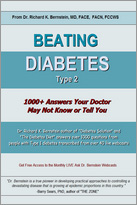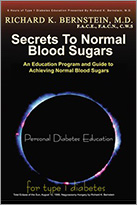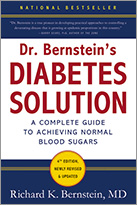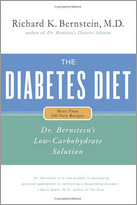by Richard K. Bernstein, M.D., F.A.C.E., F.A.C.N., C.W.S.
March 1998
Diabetes Interview
Question:
The subject of treating diabetes with a low carbohydrate diet is virtually untouched by other publications. I would like to see a series of articles about it. Of course, a quicker way would be to read Dr. Richard K. Bernstein’s book Dr. Bernstein’s Diabetes Solution (Boston: Little, Brown & Company, 1997).
I have a question which I hope Dr. Bernstein can answer. Fat in the diet is a controversial subject as it relates to diabetes. Some swear that there is a relationship between too much fat and increased blood glucose, as measured after a meal. It would be very helpful for Dr. Bernstein to comment on this subject.
Carl Lau, Internet
Answer:
Despite the claims of many, fat does not raise blood sugar. Because outside pressure on this subject is so great, I do not expect anyone to accept my word. Instead, you can prove it to yourself.
If you are on a rational blood glucose control regimen like the one described in my book, you should be able to skip breakfast and lunch without any significant change in your blood sugar. If you are not on an intensive program which allows you skip meals, do not attempt the following.
Try skipping breakfast and lunch one day this week to make sure blood sugar remains constant. Next week, however, consume a shot glass (2 oz.) of peanut oil (better tasting than other oils) three hours after you arise in the morning. Check your blood sugar before the oil, and every hour thereafter for four hours. If your blood sugars were level in the first week, they will be level in the second week. Two ounces of peanut oil contain about 500 calories! If these do not raise your blood sugar, you have proven my point.
I guarantee that you will see no blood glucose change. By the way, don’t try peanut butter, as it contains carbohydrates and protein.




